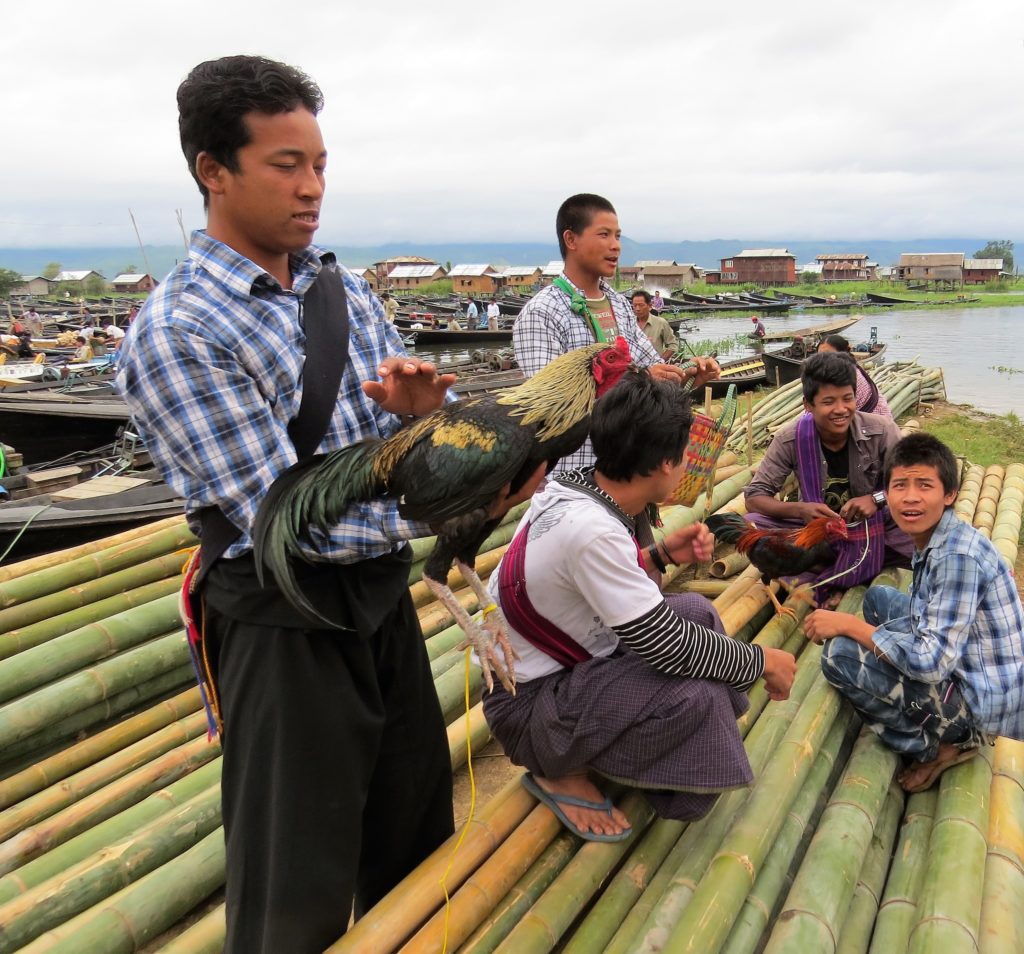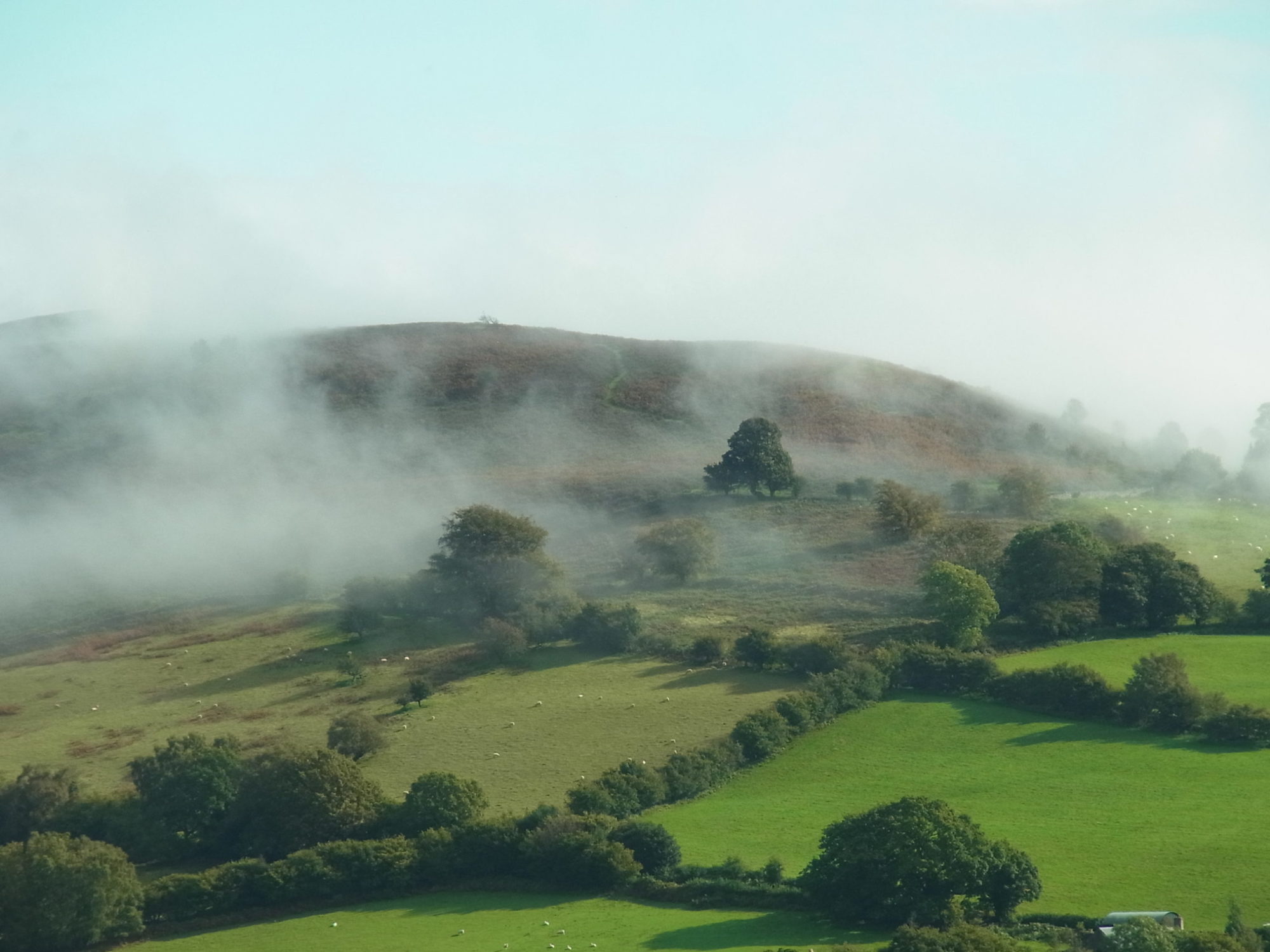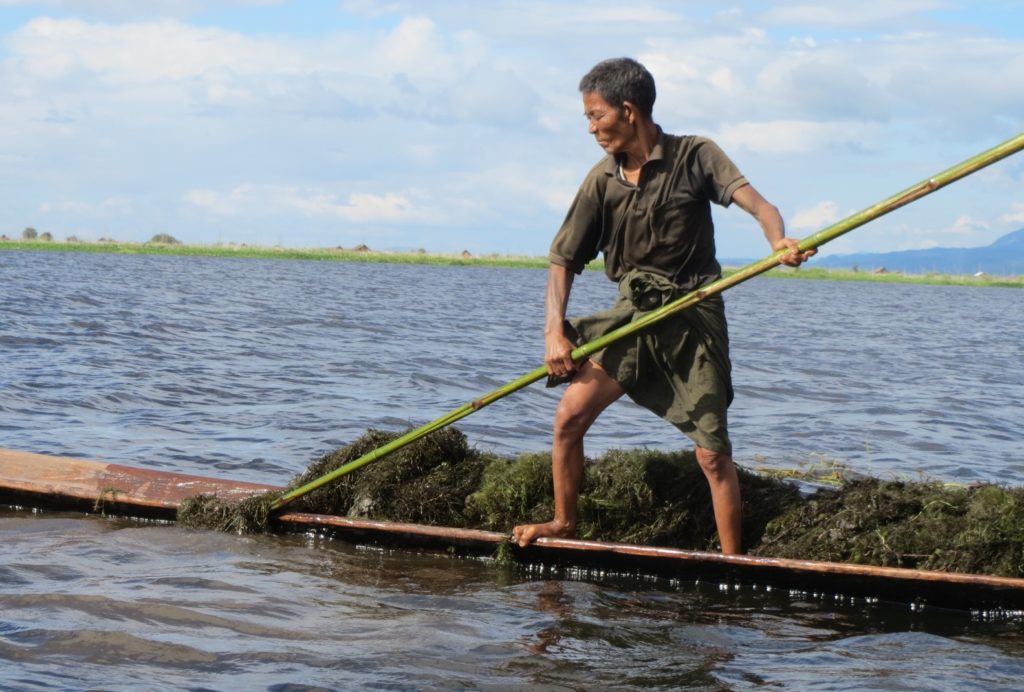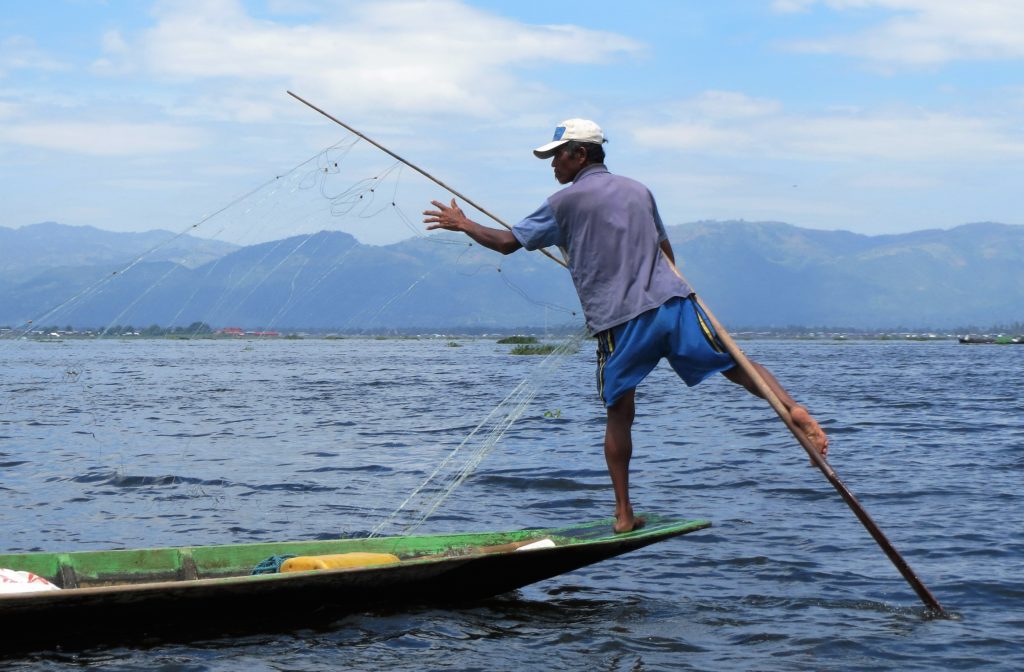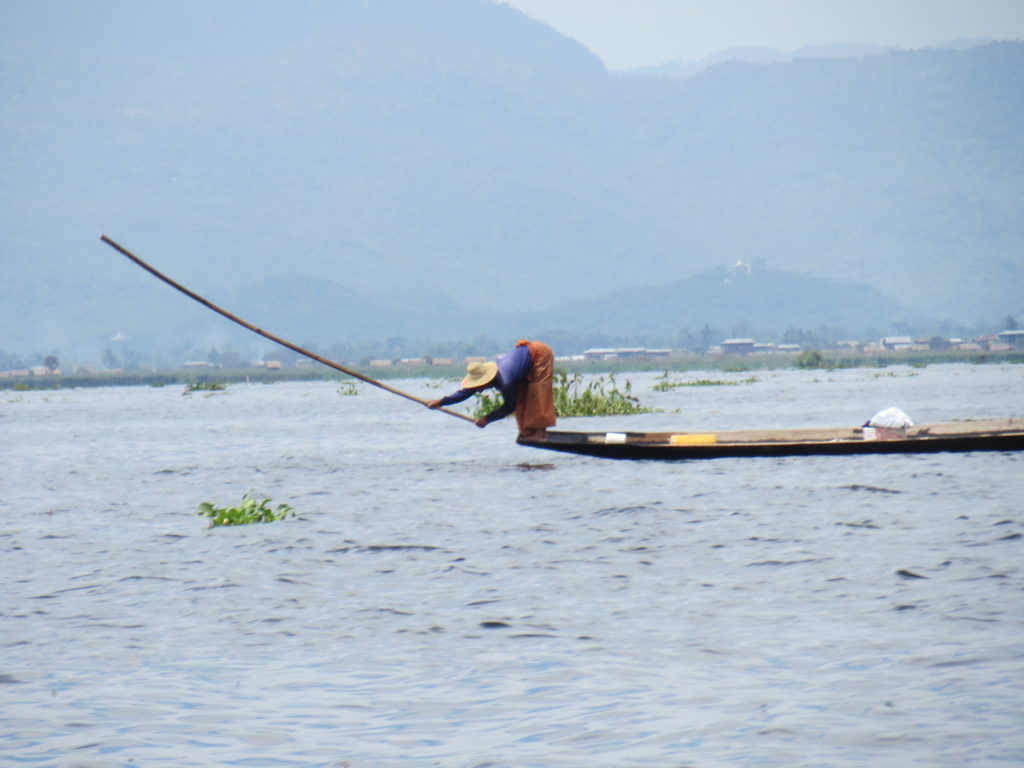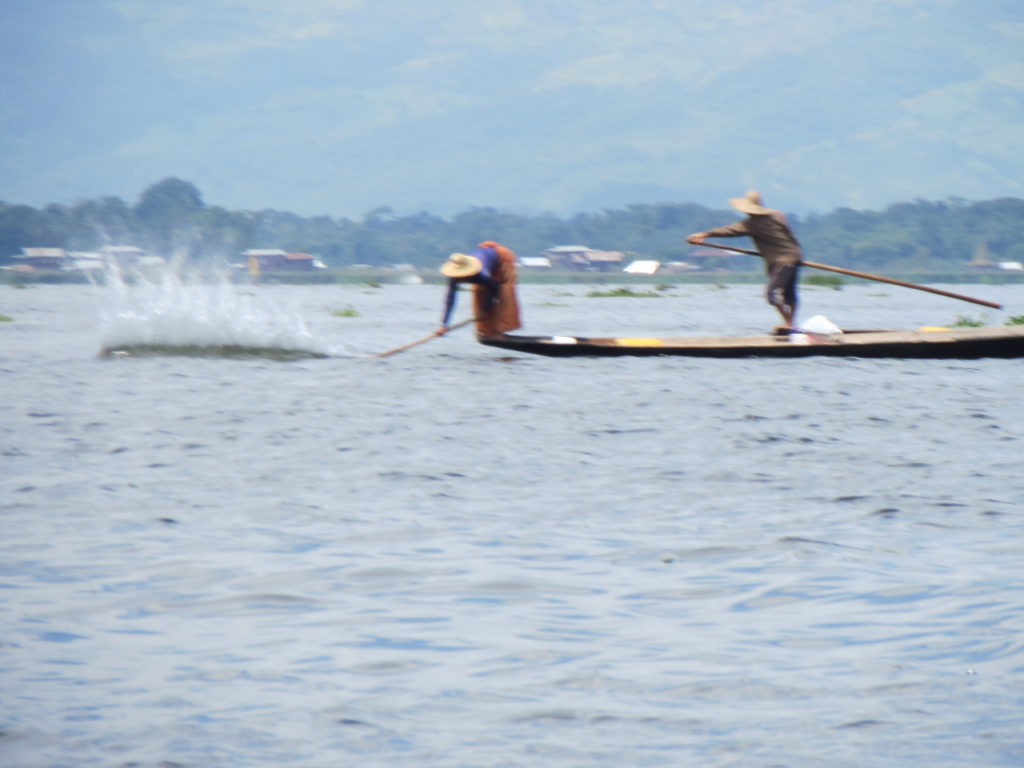Myanmar, with all its complex history, raw resources, ‘wet markets’ and emerging economy, gripped me on a trip into its heartland at Inle Lake.
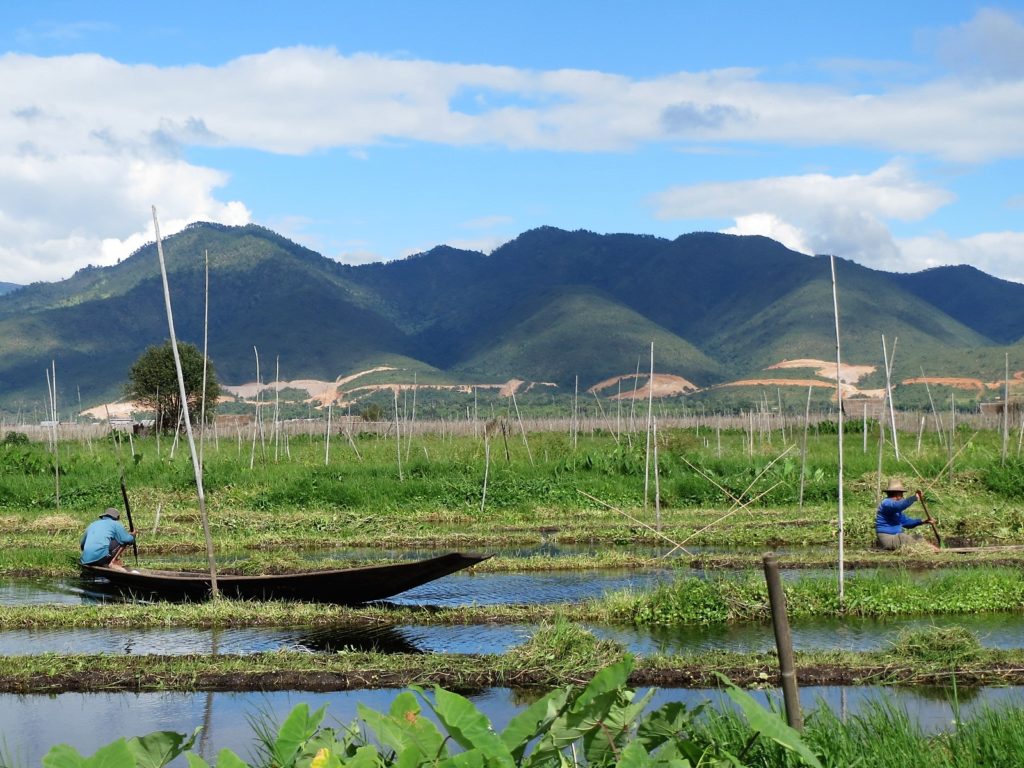
It’s 2013 and we are in Burma. Or, as I should now call it Myanmar. Especially when within earshot of the sunglass-wearing officials as we hand over the cash. Tourists pay to enter the ‘protected area’ of Inle Lake to stay on hotels which have sprung up in response to the growth of tourism. We wondered where our permit fee to enter the zone designated a ‘wildlife area’ at the checkpoint went.
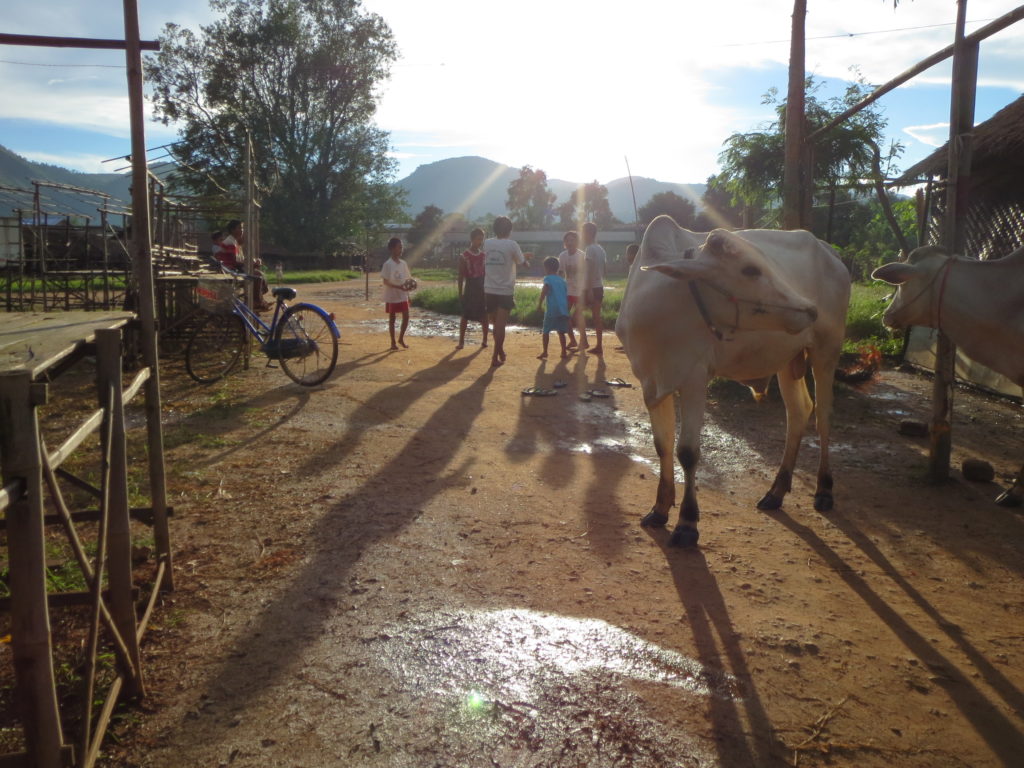
Non tourist sector
Our arranged guide was nowhere to be seen. We soon became aware his replacement, a brother, was a strident eco-activist. As we headed off up the lake, he keenly informed us that here, in this green oasis, the ‘black dollar’ ruled.
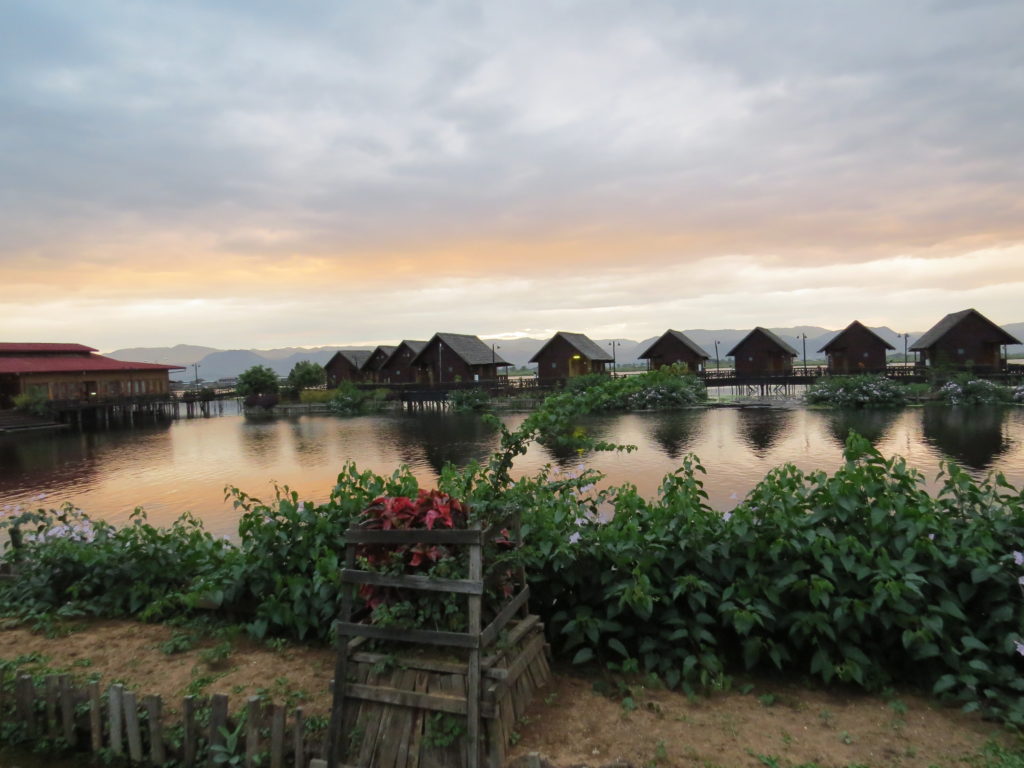
Cronyism is rife. Perhaps not unsurprising, any emerging economy, especially in remote rural areas, goes through a metamorphosis of grabbing new-found wealth prior before the arrival of rules and regulations.
This is still a country controlled by a military government who are not keen for tourists to engage in authority-undermining conversations. A chilly reminder from the spray as we bombed past a sign declaring ‘Let’s conserve our diodiversity’ [sic]
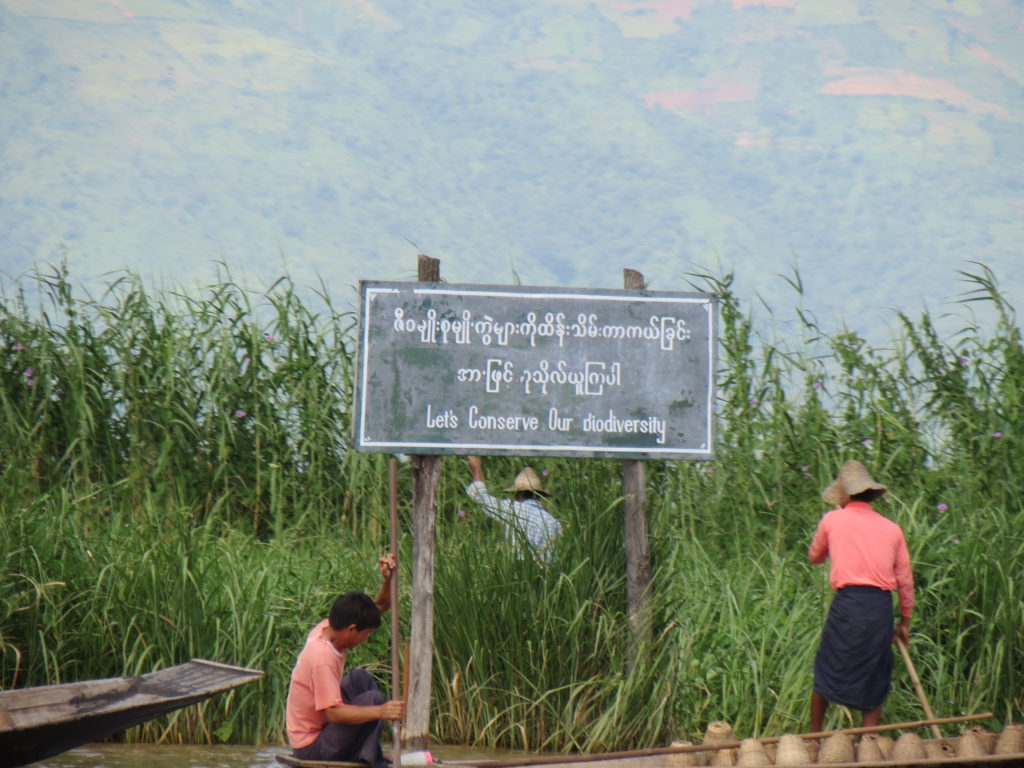
There’s a stooge fisherman at the head of the lake. Pristine, as seen on the front of the Lonely Planet guide, he’s certainly alone. Standing forlorn in spotless culottes on his boat with outdated net, he’s ignored by sniggering locals, while relished by mainly American and Asian tourists. The country is still very rural when 70% of the population live in the countryside. (The UK is at the opposite end of the spectrum, at 84% urban)
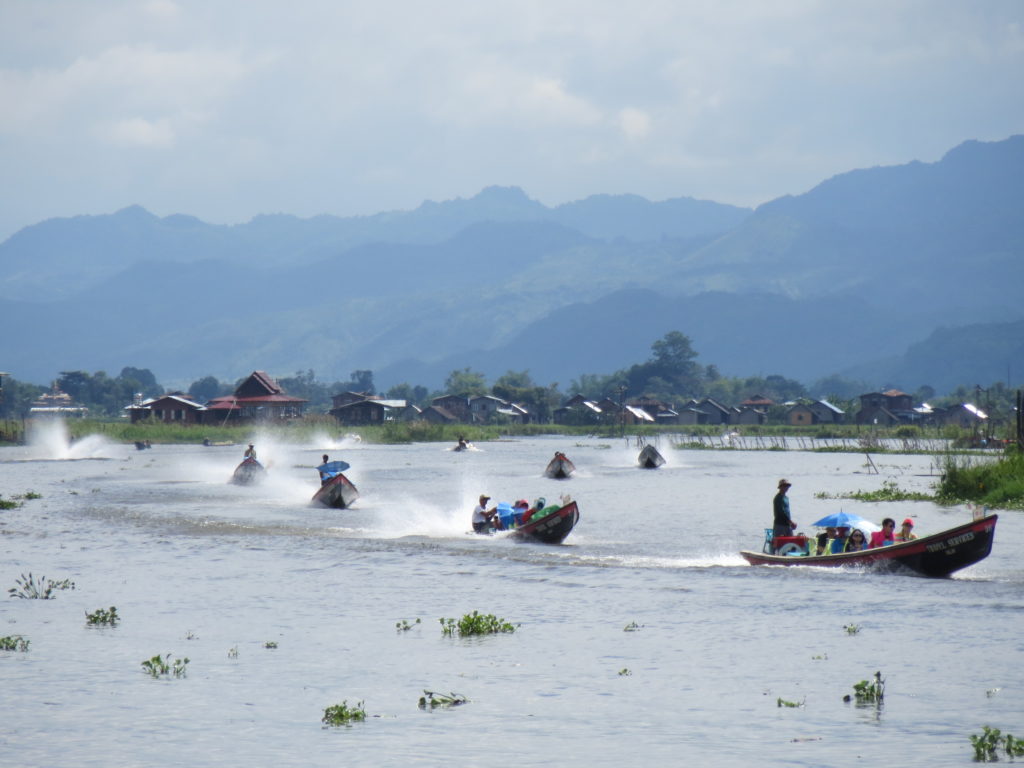
The open water beckons. Guttural roar of 2 stroke lawn-mower powered engineer thrashing the propeller at the end of a 2m long pole. It sounded distinctly alien to us within the 116km2 natural lake. No doubt normal, if not welcome, to those whose homes are settlements on stilts amongst rows of floating ‘gardens’ used to grow tomatoes.
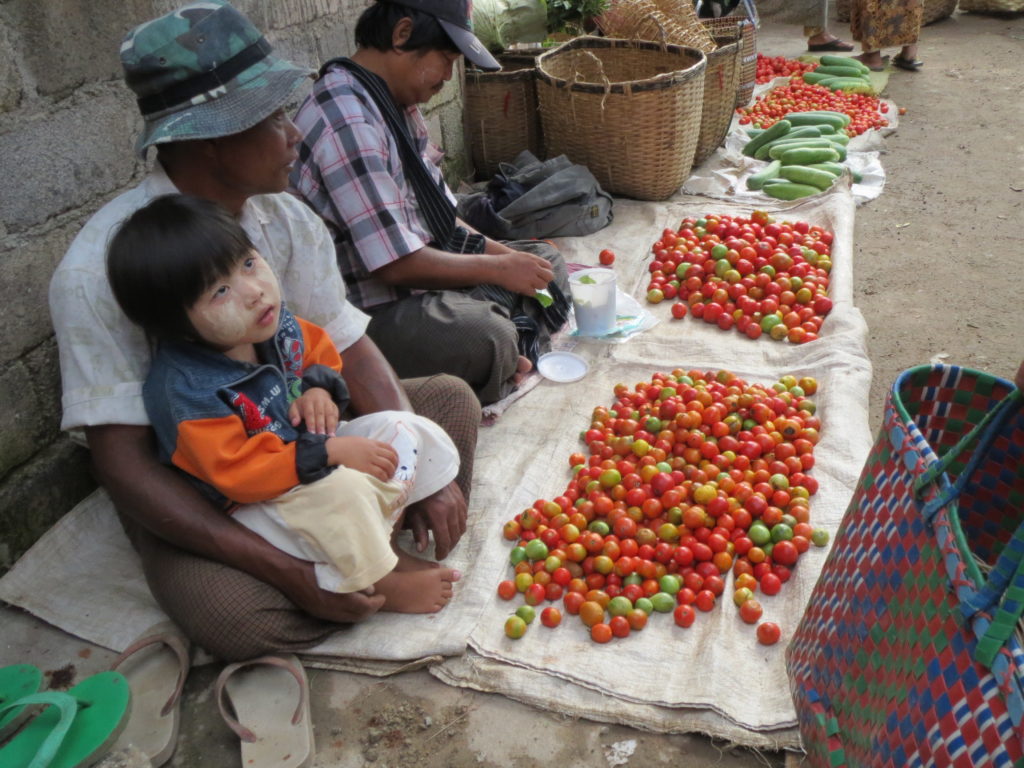
Tomatoes supply both domestic and export markets. Boats barely afloat, laden with rotting methane-pungent weed heaved up from the shallow bottom, ferry this natural fertiliser to acres of bamboo-skewered anchored ‘aquaponic’ veg beds.

Fertiliser forever?
In the distance we could see inroads made, literally, from mainly Chinese investment interests. Great chunks of forest cut away for hotel developments. There’s no secure private land ownership in the country. I doubt environmental planning assessments ever get in the way of these works.
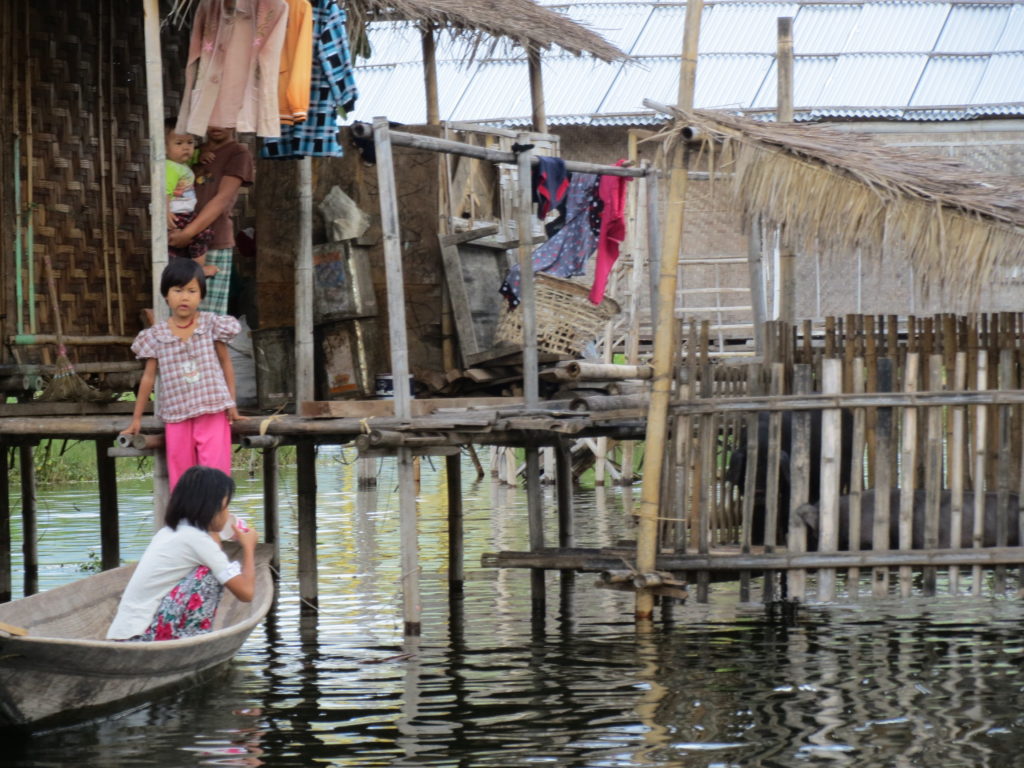
Elsewhere on the lake, aquatic living conditions are the norm as chickens, pigs, hotels, factories, restaurants all perch over the weedy waters of this chaotic lake.
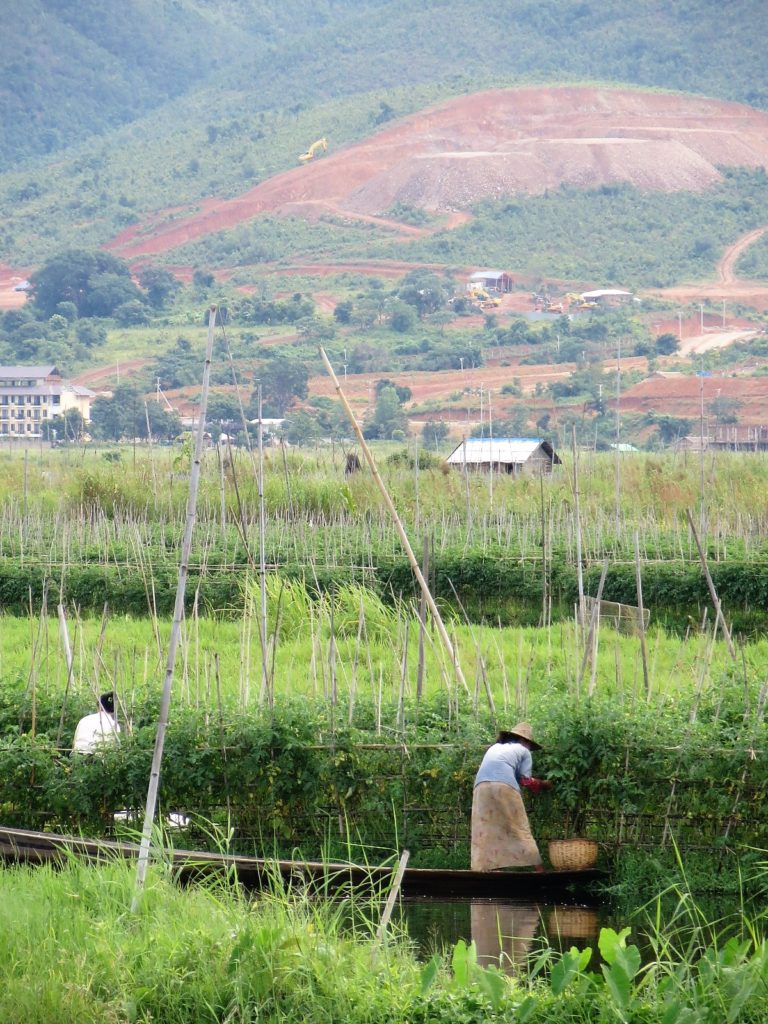
We asked our eco-guerrilla-guide to take us to non-touristy stuff. He didn’t disappoint. An early six o’clock trip to the local market saw no sign of any other tourists. Work was a hand. Deliveries of bamboo construction poles, cocky lads with strutting cockerels. Shopping was well underway – even as a lady slipped on the mud smashing her newly-bought eggs.
Smell of fish pervades the air. Dried, fresh, baked, salted, going-off, sautéed – size was definitely not of importance. Slabs of fish hung morning-fresh on string or bagged up shrimp-size offerings, sellers laid out their trophies to decisive critical-eyed buyers in from upland villages in jaunty traditional costumes.
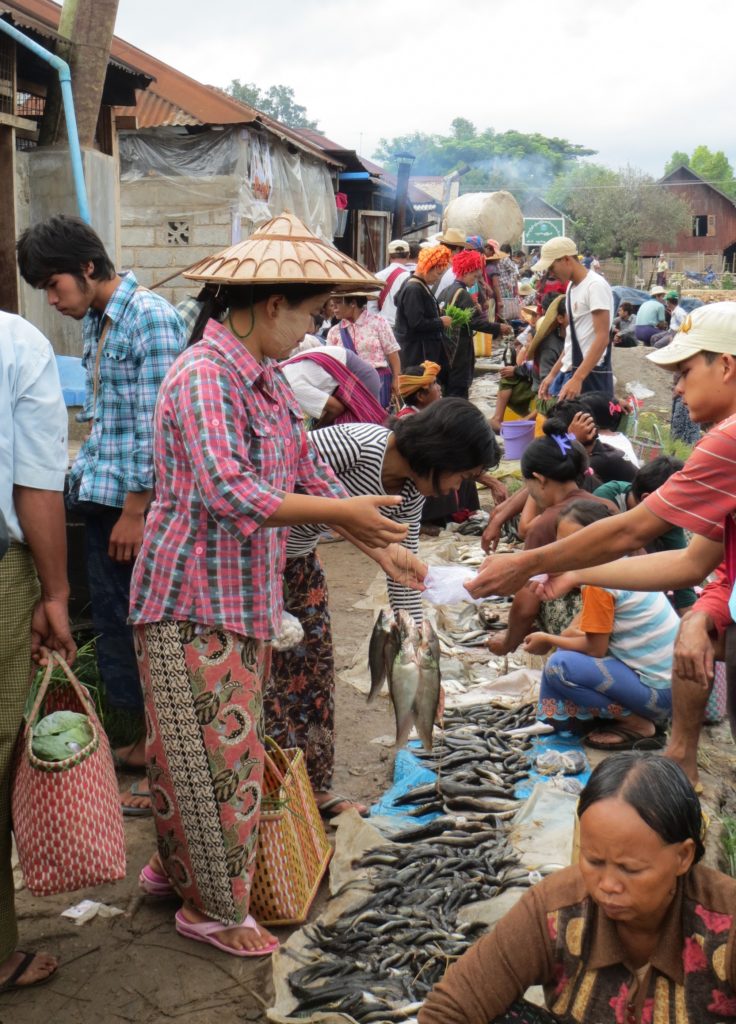
Back on the lake, fishermen got on with their primary industry of supplying the produce to the market. No motor here. A distinctly young person’s activity. Burmese style fishing, on ultra-narrow boats, demanding a sense of balance in its highest state. Perched on one end of the boat, holding the oar with a leg to create a specific motion to propel and steer the boat, get fishing!

Try this
This takes multi-tasking to another level. With a leg around the oar, the hands hold a fine meshed net, carefully threaded onto a stick, which is unrolled while paddling, one-legged, in a wide ‘U’ shape. Once the net is set, the fisher then slaps the water with his (or her) oar to drive fish into the net. For all that work, not every ‘fish drive’ was a success but, like any angler – optimist or forever hungry – on they go to fishing.

fish slapping… 
…action
This newly opened up country is a nexus between two worlds. Money from richer neighbouring Asian countries pours in to grab underdeveloped natural resources. Agricultural pesticides are freely sprayed. Tourists snap up bucket-list bucolic dream holidays with boutique beer. While then, unthinkingly signing a petition to ban ‘wet markets’ post Covid-19 Foreign agri-consultants advise locals and new hotels dispose of sewage unseen.
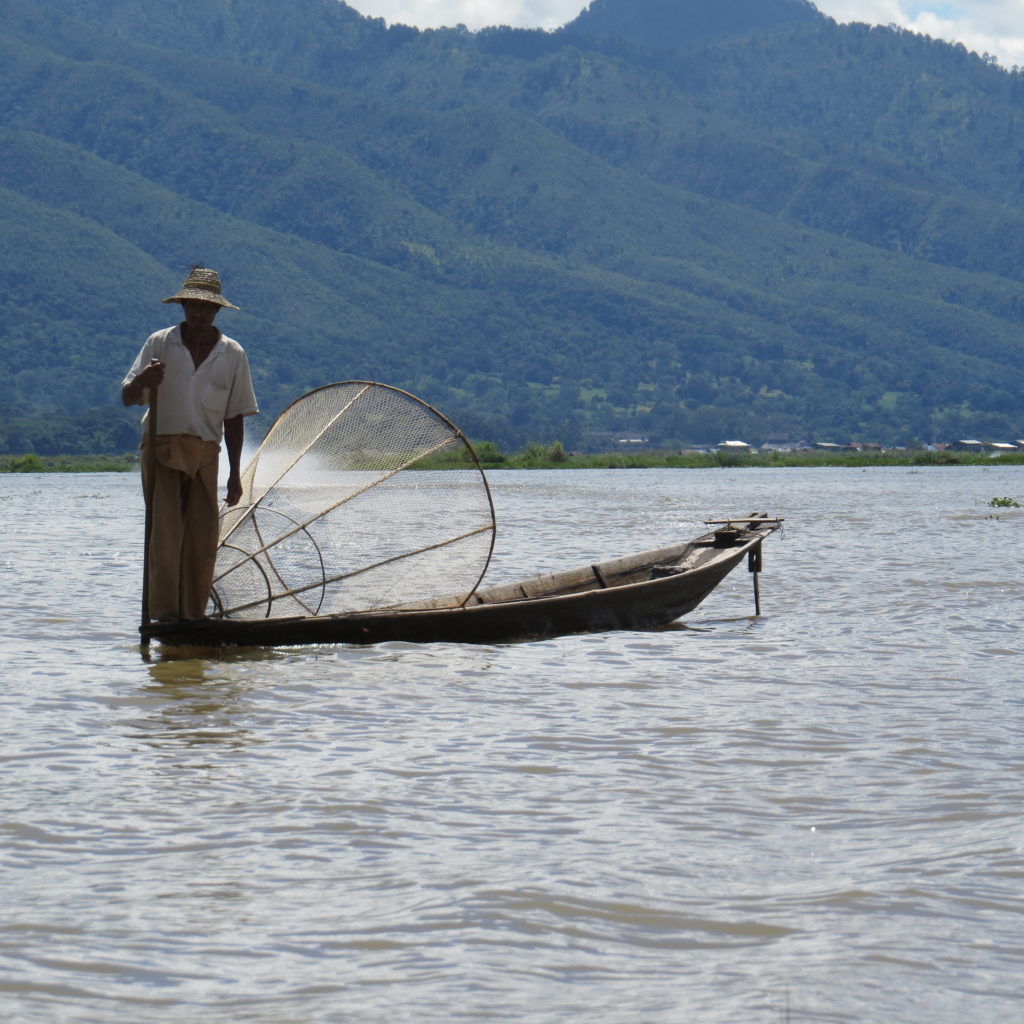
An extraordinary country evolving. Now in the great pain of another coup (April 2021). A country I will never forget as it works out how to sustain and harvest resources for future generations of fish-slapping fisherfolk.
